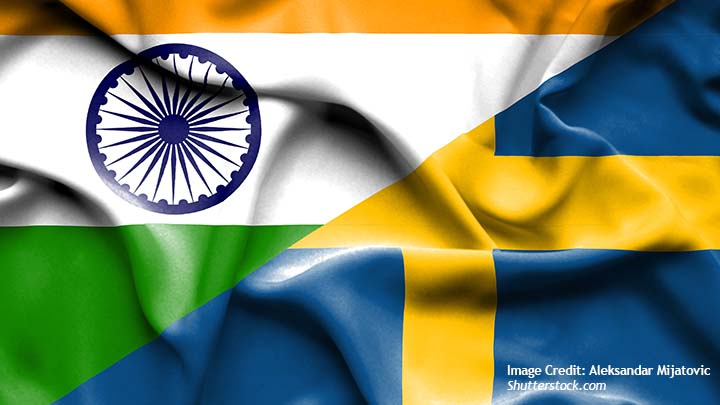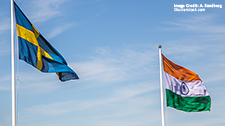India-Sweden Strategic Compass

Marta Chiusi, Lena Fargier, Ana Carolina De Oliveira Assis and Jagannath Panda
The year 2024 is proving to be quite memorable for India-Europe relations. First off, PM Modi’s multiple visits to the EU member-states of Austria and Poland, as well as Ukraine (which is on the path to EU membership) in a short span of time has highlighted India’s push to increase its European outreach beyond the traditional powerhouses such as France or Germany – the stress on Central Europe is evident in these recent trips. Moreover, Modi’s trip to Ukraine will help convey India’s strong stance on peace and dialogue, alleviating certain doubts about India’s so-called neutrality among some Western policymakers.
For Ukraine, too, the trip highlights that the war-torn country’s diplomatic efforts are bearing fruits particularly to engage non-Western nations in any future talks with Russia. It is also great optics for India’s leadership aims, particularly as India is a natural leading “Voice” for the Global South and a counter to China’s Global South influence; and so would be critical in bridging the North-South divide. Sweden-India ties seem to be moving at a steady rate, with Sweden’s foreign minister already having visited India earlier this year and cooperation in priority sectors of Innovation, sustainability, trade, and investment continuing via foreign office consultations. It would interesting to see how the two sides take forward their
promises to explore cooperation in semiconductors, green steel, and green batteries.
There is also potential for increasing naval activities (e.g., perhaps capacity building or naval interoperability) for a strengthened maritime cooperation, as the visit of INS Tabar highlights. Again, for India-Nordic relations, time is ripe to expand cooperation in strategic fields such as maritime cooperation while strengthening high tech-oriented economic ties and a momentum for green transition. On the whole, India seems intent on leveraging its economic strides and acknowledgement by international institutions like the IMF about its future outlook to push for a diverse and “highly productive” partnership with European partners, be they Sweden, the Nordic states, Ukraine, or the EU as a bloc.
Read the latest (July-August 2024) issue of India-Sweden Strategic Compass here.
Related Publications
-
India-Sweden Strategic Compass, Vol.3, No.5, September-October 2024
The year 2024 has been thus far remarkable for India’s global engagement, with significant strides in diplomacy, technology, and sports. Prime Minister Modi’s visit to the United States highlighted deepening […]
-
Navigating the Indo-Pacific: How Australia and the EU Can Partner for Peace, Stability, and Prosperity
To navigate the choppy waters of the Indo-Pacific, the EU and Australia must be on the same wavelength regarding shared interests in rules, values, and an open and liberal economic […]
-
Report of the Webinar on China’s Himalayan Hustle – Part II: Will Eco-Dominance Be China’s New War Front?
This report is an outcome of the webinar titled “China’s Himalayan Hustle – Part II: Will Eco-Dominance Be China’s New War” held on June 18, 2024. Dr. Jagannath Panda moderated […]
-
Report of Webinar on China’s Himalayan Hustle – Part I: Can China Achieve Infrastructural Hegemony?
On June 13, 2024, the Stockholm Center for South Asian and Indo-Pacific Affairs (SCSA-IPA) of the Institute for Security and Development Policy, Stockholm, hosted a webinar “China’s Himalayan Hustle Part […]
-
India-Sweden Strategic Compass, Vol.3 No. 3 May-June 2024
Post the elections both in the European Parliament and India, the momentum in foreign policymaking should ideally resume its earlier pace. Notably, concluding timely negotiations for the much-awaited EU-India free […]




